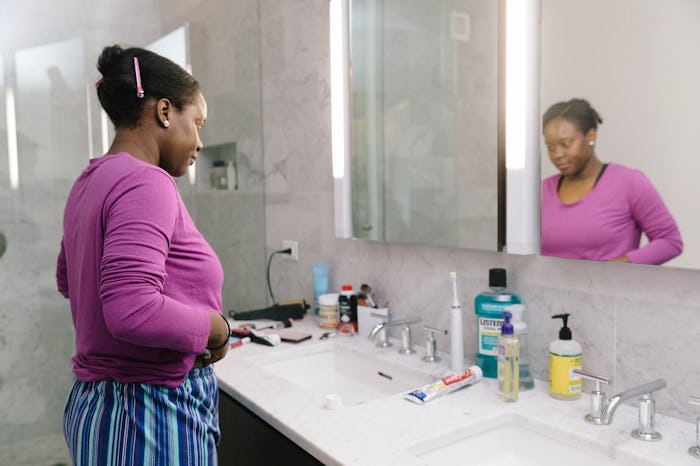Life
When Can You Get Pregnant After Having Uterine Polyps Removed?
So you've had uterine polyps. It's no biggie, because not only are they typically benign, but many women get them — between 10 and 24 percent of women, in fact, according to Medscape. But what does this mean if you're trying to conceive (TTC)? How long do you have to wait to get pregnant after having uterine polyps removed ? Understandably, you want to get back to doing the baby-making thing as soon as possible.
According to Dr. Sherry Ross, OB-GYN and Women’s Health Expert at Providence Saint John’s Health Center in Santa Monica, California, it’s best to wait one or two cycles before trying to get pregnant again, because you want the uterine lining to be “fresh and healthy after having had the procedure to remove the polyp,” she tells Romper in an email interview.
Thankfully, the uterine polyp removal procedure has an easy recovery, according to Ross. “Uterine polyps are treated through a dilatation and curettage outpatient surgical procedure. A light ‘twilight’ anesthesia is given prior to the procedure where the cervix is dilated, and instruments are used to remove the polyp so it can be sent to the pathologist to make sure it is completely benign,” she says. You may experience light bleeding or light cramping after the procedure, but that’s about all the side effects of this outpatient procedure.
If you're worried that having uterine polyps will somehow negatively affect conceiving, try not to worry. Typically, uterine polyps are seen in women between 40 and 50 years old, who are going through or have finished menopause. Younger women can get them as well, however, and these are caused by hormonal factors, according to the Mayo Clinic. “They grow in response to circulating estrogen” because they’re estrogen-sensitive, Ross says. “Unfortunately, there is no way to prevent polyps — some women are just prone to getting them."
However, you are at a higher risk of developing uterine polyps if you’re obese, have high blood pressure, or are taking tamoxifen for the treatment of breast cancer. “Women who are in perimenopause or menopause are also at an increased risk for getting a uterine polyp,” she says, but "there is no increased risk for having cervical cancer if you have a uterine polyp."
To lessen your chances of getting uterine polyps, just try to have a healthy, active lifestyle, and see your gynecologist regularly for checkups to make sure everything is doing OK in there. But if you do end up having uterine polyps, no need to worry. Almost 100 percent of the time, they’re benign growths. You can continue TTC as soon as two weeks after their removal and go on to have a healthy, happy pregnancy and baby.
